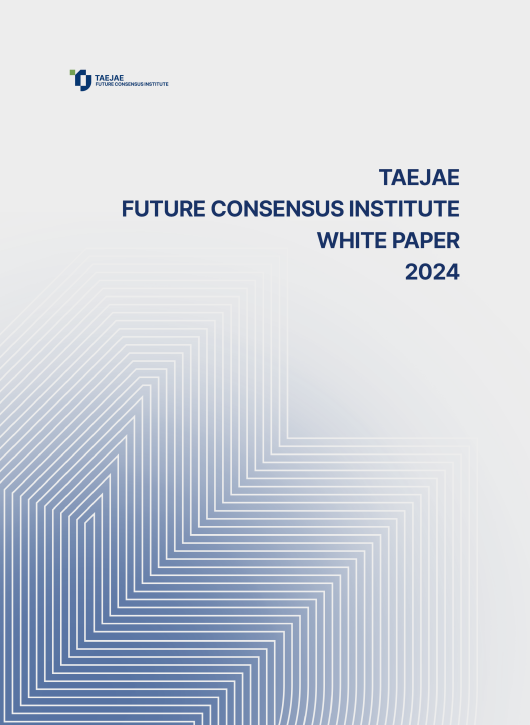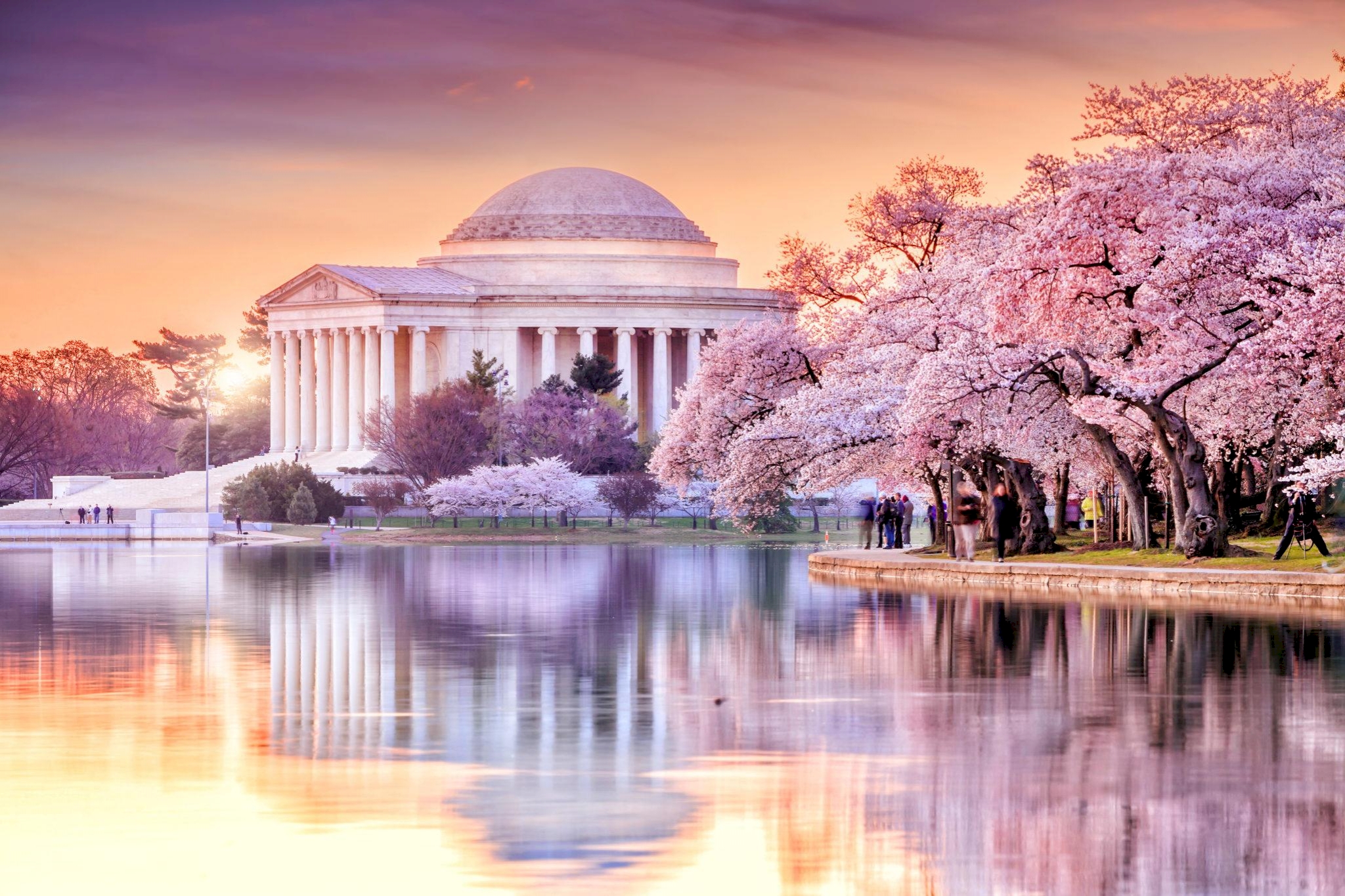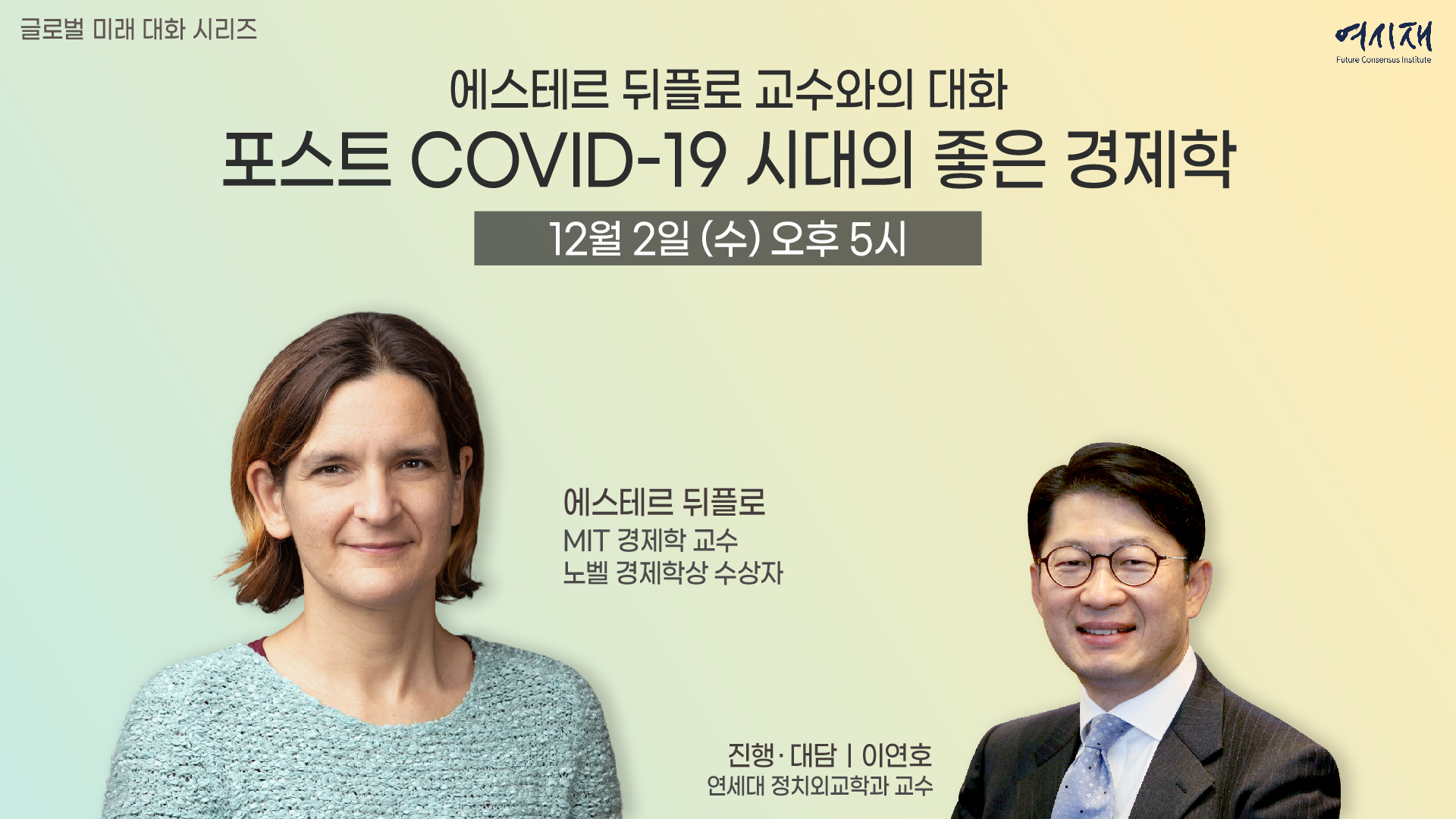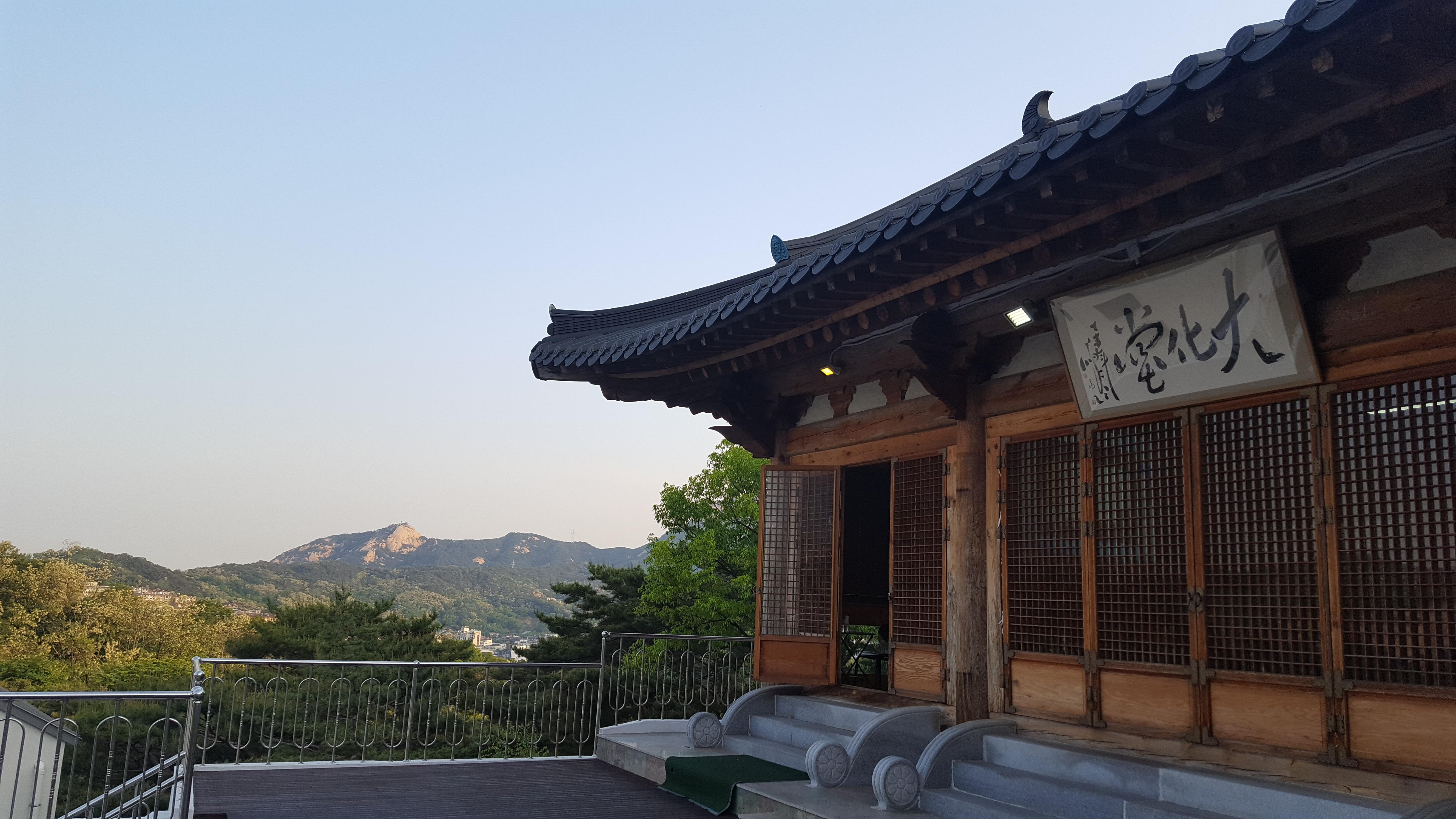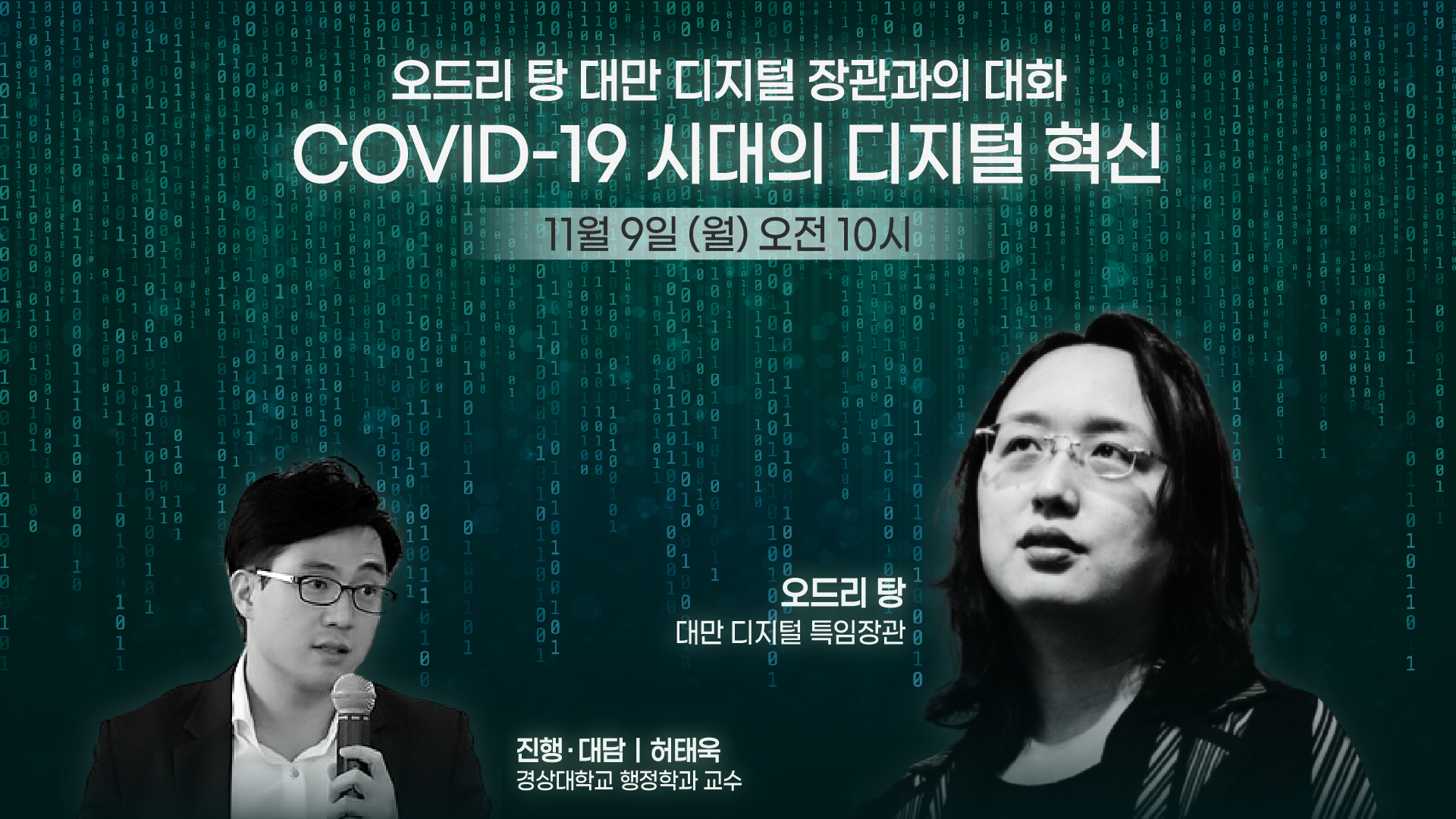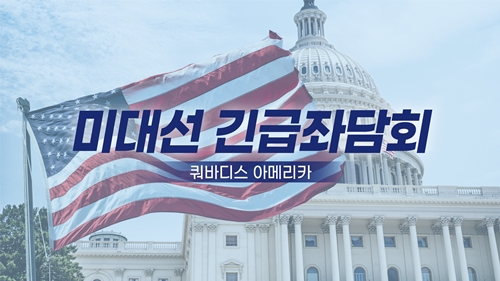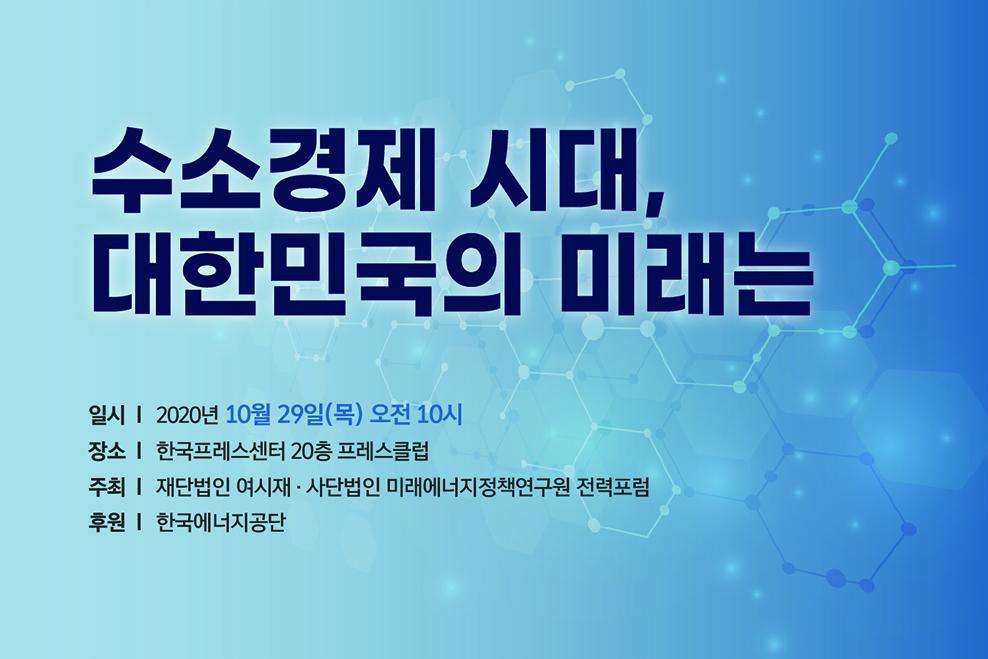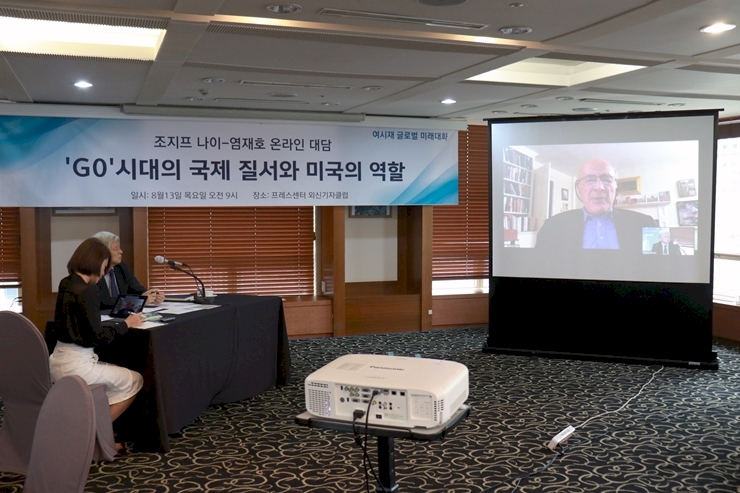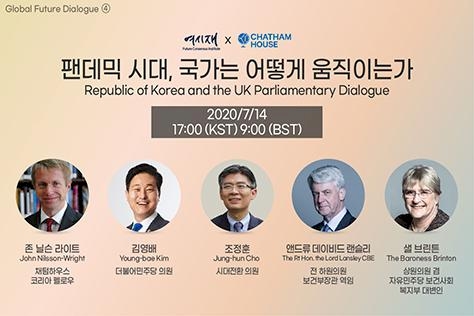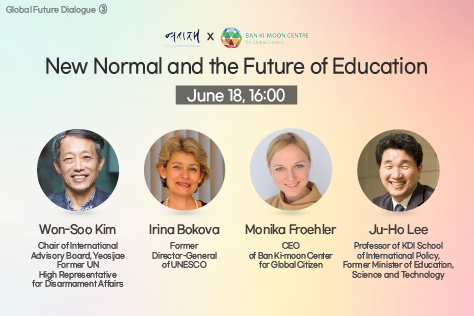Please join Yeosijae as we build a brighter future for Korea. Create your account to participate various events organized by Yeosijae.
- Insights
- |
- Global Order and Cooperation
- Future Industries
[Global Future Dialogue ⑥] A Conversation with Professor Charles Kupchan: America’s Isolationism and the New World Order
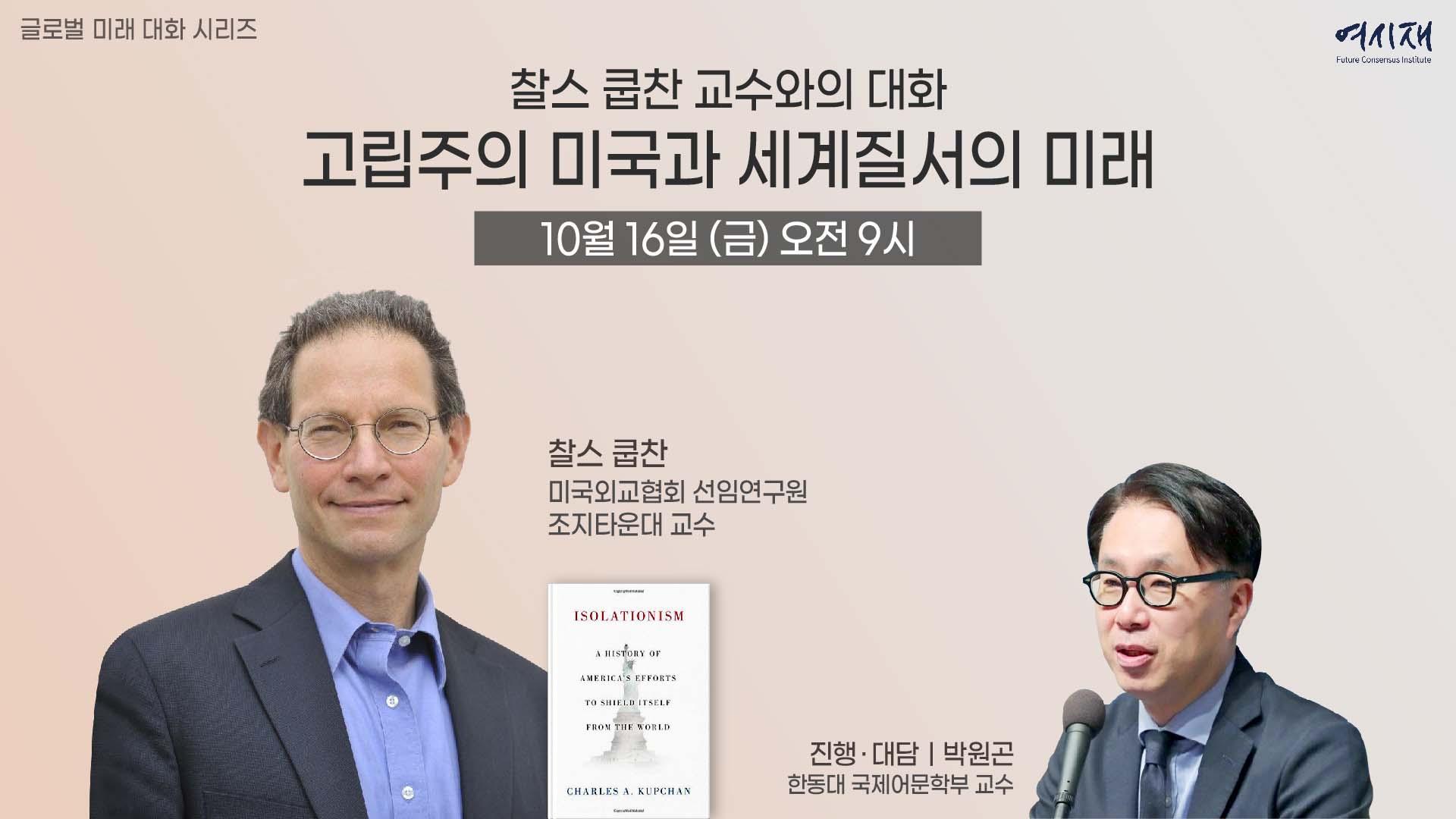
The 2020 U.S. presidential election is just a few days away. The next inauguration will be held on January 20, 2021, and consequently, the new president will come up with foreign policies for the next four years after having six months of preparation and coordination. As the conflict between the U.S. and China is deepening, what the next four years hold depends considerably on the outcome of the election. Moreover, the election is bound to have a greater impact on the Korean Peninsula than any other presidential election in history.
The Future Consensus Institute (Yeosijae) has been hosting various webinars with leading scholars to discuss the future of international order after COVID-19. On October 16, Yeosijae held a webinar on “America’s Isolationism and the New World Order.” The webinar was chaired by Mr. Won-gon Park, Professor of International Politics at Handong Global University, and the speaker was Mr. Charles Kupchan, Professor of International Affairs in the School of Foreign Service and Government Department at Georgetown University and Senior Fellow at the Council on Foreign Relations. From 2014 and 2017, Mr. Kupchan served as Special Assistant to the President and Senior Director for European Affairs on the National Security Council in the Obama White House. He was also Director for European Affairs on the NSC during the first Clinton administration. During the webinar, he discussed his recent book titled Isolationism: A History of America’s Efforts to Shield Itself from the World and predicted the direction of U.S. foreign policy after the 2020 U.S. presidential election. He emphasized that the upcoming era will shift from a bipolar world to a pluralistic order involving South Korea, Japan, Australia, and Europe.
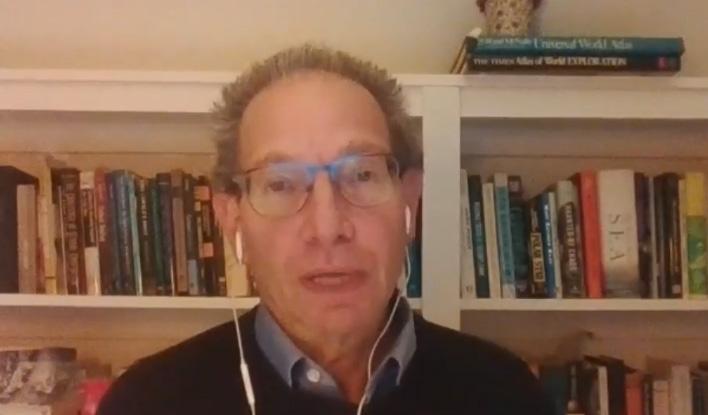
[Professor Kupchan Keynote Speech]
“The U.S. was isolationist in the early parts of its history.”
The subject I want to discuss today is the future of America’s role in the world. I want to get to that question by looking back. My book is 90% history, and as you know, only at the end do I get to the Trump administration. I worked at the White House during the Clinton years. I saw that Clinton was reluctant to intervene in the Balkans despite the bloodshed. I had to think to myself, something is changing here. The robust international enthusiasm of the Cold War era seems to be dwindling. Then, we get 9.11, and the drift reverses. The U.S. gets engaged again. That leads to a tilt-back away from engagement because the American public grows weary of the Iraq War, Afghanistan War, and intervention in Syria and Libya. Many people began to ask why we are building schools in Afghanistan when we should be building them at home. That’s when I began to look at isolationism and wonder whether it’s important to understand the U.S. not just from Pearl Harbor and WW2 to the present but from 1789 to the present. The U.S. was fiercely isolationist in the early parts of its history. From the beginning until 1898, it refused to take strategic commitments outside North America. Also, the founding fathers advised avoiding foreign entanglement. That lasted until the Spanish-American War. When the Nazis overran Europe and when Japan overran much of East Asia, the U.S. engaged only after it was attacked in Pearl Harbor. It engaged in what I would call a battle of strategic delusion, thinking it can stay out of the fray while Japan and Germany conquered Asia and Europe.
“Trump is more of a symptom than a cause”
After Trump was elected, in his inaugural address, he said “from this day forward, it’s America first.” Trump was isolationist, unilateralist, racist, and protectionist. It was, in many respects, going back to the practices before 1941. His approach to the world has deep roots in American history and American exceptionalism, which is a concept that the U.S. is a chosen nation. That sense of specialness has become a justification for the U.S. to go out there and run the world. But before 1941, it was just the opposite. And the pendulum seems to be swinging back, especially during the pandemic. America is closing its borders, and international travel has fallen off the cliff. We seem to be at a very important inflection point or tipping point, where talking about doing less to the world is more popular than talking about American leadership. When I look at the country today, I see attributes that remind me of the 1930s. The pandemic’s economic impact rivals that of the Great Depression. Nativism and white nationalism make reminiscent of the 1930s. I would remind people that xenophobia and isolationism often go together and that Trump is not subtle about playing the race card and talking about the need to reclaim the Anglo-Saxon tradition of the U.S.
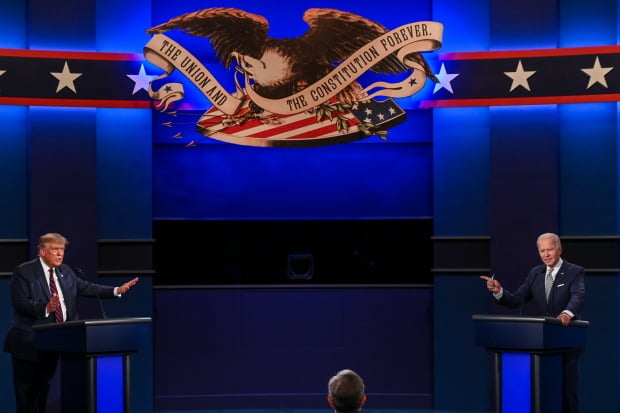
“The U.S. should continue to have a presence in the EU”
Regardless of who wins the election in November, the main pullback will focus on the Middle East and other areas outside the broad Eurasian figure. I am someone who believes the U.S. should continue to have a presence in the EU, and a forward-leaning posture should remain in East Asia. When I am talking about the return of an inward instinct, that will be least felt in your part of the world because of the rise of China and North Korea, and the degree to which a threat coming from the rise of China will keep the U.S. engaged.
“Trump’s re-election is good and bad for South Korea”
If Trump wins, I would say there will be good and bad news. The good news is that he is someone who has taken a risk and sat down at the table with the North Korean leader to establish a relationship with him. We are not going to solve the Korean Peninsula problem unless there is serious diplomacy between Pyongyang and the U.S. and Seoul. That having being said, I would invite South Korea to ask Trump to do his homework. When key breakthroughs have taken place, they came when leaders came together after the homework was done and pieces were put in place. Trump tends to jump the gun. He discusses things with Kim before the diplomats have set the table. That is not going to work. The bad news is that Trump loves to be seen as someone who resolved the North Korea problem. I do worry that Trump might be too eager for a breakthrough on the Korean Peninsula.
“Whoever becomes the next president, Washington’s policy toward China will not change”
If Biden is elected, I think he would want to return to steady and determined diplomacy. On that front, I would like to give you three advices. First, Biden will be more sensitive to what allies do. Biden will continue to look to South Korea, Japan, Europe, and other allies to share more and more of the burden because he will have his hands full at home, getting the pandemic under control and bringing the economy back to life. South Korea can chip in and show itself to be a good and reliable ally. Second, he will keep the door open to improving the relationship with North Korea and keep that dialogue open. I am someone who believes President Moon has been doing the right thing. The book that I wrote prior to this book is How Enemies Become Friends. In that book, I look at many long-standing rivalries that end in peace. I can tell you peace does break out, but it takes hard work, a long time, and patience. Third, we are unlikely to see a big change in American policy toward China if Biden wins. That is because there are underlying conflicts of interest that are very difficult to escape. However, I do think we know that China’s influence will grow in the years ahead and that one of the greatest challenges of our time will be managing the relationship between the U.S. and China as Chinese influence and ambitions grow. I do invite South Korea to serve as a bridge between China and the U.S. South Korea has an important role to play in guiding the U.S. and China toward peaceful management of this coming power transition.
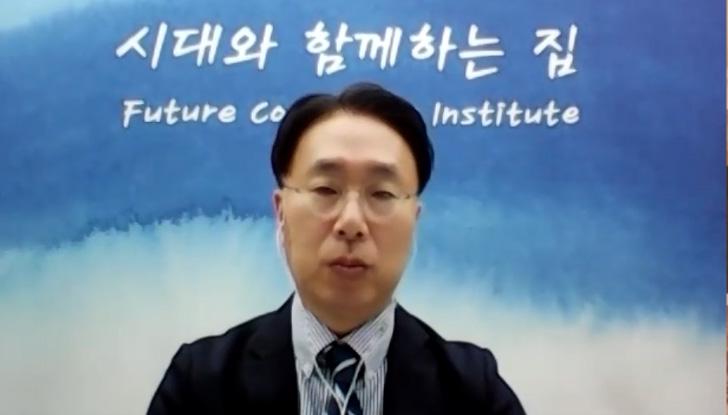
[Discussion]
Professor Park = Regardless of who wins the election in November, the U.S. has decided to have a serious competition against China. It is becoming more like a zero-sum game. In such a situation, how could South Korea act as a broker between the U.S. and China?
Professor Kupchan = I agree that the U.S.-China relationship does not look good. Democrats and Republicans do not agree on much, but they agree on the need to take a tough line on China. The position that China has taken on Hong Kong and its behavior in Xinjiang are some of the less than subtle movements during the pandemic. This has not earned a lot of friends in the U.S. and other parts of the world.
It is unrealistic to imagine a bipolar world similar to that of the Cold War because the world has become too integrated and interdependent. South Korea and other markets are deeply intertwined that pulling apart is challenging. Yet, I do see some reallocation of supply lines, particularly in high tech, but the bigger economic relationship is difficult to untangle.
There isn’t a real China policy in the U.S. There isn’t much of a foreign policy. What we have are tweets. However, if Biden wins, we will see several changes: 1) there will be a policy process to manage the rise of China; 2) there will be a resuscitation of strategic dialogue, and; 3) there will be more of a coalition to deal with China. The key is to convince the Chinese to find rooms for compromise and mutual understanding on many fronts.
Professor Park = What differences do you expect from the Biden presidency and the Obama administration?
Professor Kupchan = If you were to compare the Biden presidency with Obama and Trump, I think he would be much closer to Obama. That is because they are pretty similar in view. They are both pragmatists. They are not neo-conservatives, nor are they hardcore isolationists and unilateralists like Trump. However, there have also been changes. First, we are now living in this country through an unimaginable crisis of democracy. Over the last few weeks, Trump said he is not sure if he will go peacefully if the election does not go in his direction. This is kind of an unimaginable statement from the U.S. president. I think the first thing Biden has to do is to reinstate the U.S. as a country and as a model that does operate according to the rule of law. Second, even though the Obama administration inherited a financial crisis, I think the situation today is much direr. The Biden presidency will have to heavily focus on the domestic front, get the pandemic under control, and put the economy back on its feet. Third, Biden will have to reallocate resources to climate change, cybersecurity, and global health. We have learned over the last couple of years that cybersecurity, pandemic, and disease are immediate threats to the wellbeing of our societies.
Professor Park = How in your view is retrenchment different from isolationism?
Professor Kupchan = In the U.S., we tend to have a debate that has two poles on it. One pole says everything is fine. Other pole calls themselves restraint school. They call for a very serious pullback of the U.S. from international affairs. They call for the U.S. to become an offshore balancer. This essentially means we get out of our major continental commitments. I believe it would be difficult to go back once we pull out of the region. So, retrenchment to me is that let’s keep those main strategic commitments intact. Let’s make sure our strong points and key areas of strategic interests are well taken care of. But, let’s pull back from wars of choice.
Professor Park = Could you tell us more about the impact of COVID-19 on American foreign policy?
Professor Kupchan = There are two competing response and impulse to COVID-19. One is to say that this virus came from abroad. This virus is, to some extent, a function of globalization. One impulse is to turn inward and pull back and close borders. The pandemic makes clear that this kind of turning inward is crazy. What happens in one country no longer stays in one country. The world is very interdependent. Therefore, pulling out of WHO, as Trump has done, sounds to me as an unwise and unsound foreign policy. I think that is why public opinions show that Trump is rapidly losing grounds. He has fumbled the pandemic. Trump has not had a policy for this pandemic. I think many Americans are finally realizing that this is a president who hasn’t handled the pandemic in any adequate fashion.
Professor Park = What kind of things do you expect the U.S. to do for its allies and across the world?
Professor Kupchan = I think it varies across the board. It’s to step up on traditional measures like defense spending, convincing Japan to play a broader role, and getting countries to not just contribute militarily but to provide more public goods. There are many different ways where countries can make contributions to one another. However, I think we are headed to a world where the gap between the demand for public goods and global governance and the supply for public goods and global governance is growing greater and greater by the day. That is partly because, amid the pandemic and weariness in the U.S. about its international role, the U.S. is not going to send out firetrucks like it has since WW2. China has been taking advantage of the distractions of other powers to move ahead on cracking down on Hong Kong. Currently, there are all these things happening in part because I think there is a vacuum. If Biden becomes the next president, he should bring together minded countries like South Korea, Japan, and India to talk about where we can come together to meet the shortfalls and how we can fill the vacuum on not just the military front but many fronts addressing a growing range of global problems.
Given that we are a few weeks before the American election, I think we are at an important juncture of modern American political history. That’s because the U.S., along with countries like South Korea, European democracies, and Japan, have been part of a historical revolution that has pushed history in a positive direction. I am hoping the outcome in the few weeks restores the U.S. that many of us know and love.
Future Consensus Institute (Yeosijae) will continue to engage in discussions with global experts to forecast future global governance and to promote global cooperation in the New Normal era.
< Copyright holder © TAEJAE FUTURE CONSENSUS INSTITUTE, Not available for redistribution >

